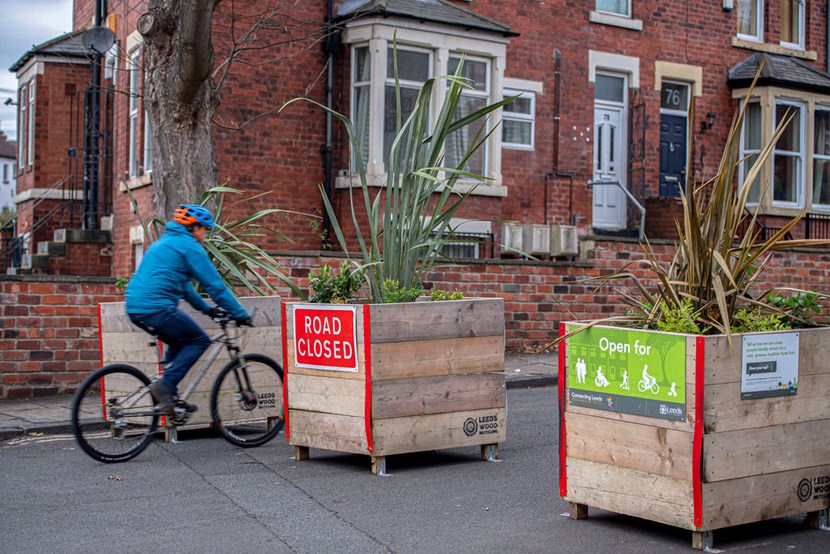Commonplace data stories: Unearthing UK Sentiments towards Cyclists

By Charlotte Cooper | 25/05/23 11:31
4 min read
Cycling, a very common sight on UK roads, often sparks a myriad of opinions and emotions among pedestrians, drivers, and fellow cyclists. In our quest to uncover the true sentiments towards cyclists, we embarked on an extensive data-driven analysis, drawing from our over 2000 Commonplace projects.
With our unique dataset capturing the views of pedestrians, drivers, and cyclists themselves, we wanted to delve deeper than the surface-level stereotypes. Join us as we unravel the intricacies of UK views on cyclists and see what kind of story the data has to tell us.
Or if you'd like to discover the wealth of data we have on other topics, just click below to have a chat! No matter your engagement project, we have the stats to steer you in the right direction.
UK cyclists: popular views or harmful stereotypes?

As you may have already heard in your day-to-day life, there are a number of stereotypes already flying around about cyclists in the UK: while many see that cycling is a good form of exercise and great for leisure activities, other anecdotes show that some motorists feel cyclists in their area are aggressive, that they cause congestion and they don’t obey the rules of the road. In fact, on behalf of BBC's Panorama, Yonder found that 33% of motorists "feel cyclists should not be allowed on the public highway and should be restricted to cycle lanes/shared pathways. Only 53% agree with the idea that they see cyclists as equal partners on the road.*
Interested by this poll, we decided to see what our own data had to say.
Firstly, we found that cycling is a very common theme in our consultations. In fact, in our local transport consultations, it was mentioned by 27% of respondents, though this did vary by area. One statistic we found particularly interesting was how cycling is not only a priority in urban areas (as one might imagine for commuting or to avoid heavy traffic), but is even more prevalent in rural areas as well with 30% of comments in rural areas focussing on cycling compared to 25% in urban areas.
When analysing the comments and sentiment of these projects, one thing that became very clear was that sentiment toward cyclists is very polarized with the majority (two thirds) either having very positive or very negative views.
But why is this? And who are the people expressing these views? That’s exactly what we dug into next to see if we could piece together the story of why certain people may feel so strongly about cyclists on the road- starting with who UK cyclists are.
Who are UK Cyclists?

When you imagine a cyclist, the same stereotype may come to mind: male, older, commuting in an urban setting- while we can’t pinpoint where this view came from we can compare to how accurate it is to our data.
Let’s break it down:
- Is it true that older people are more likely to be cyclists?
In our data, the short answer is no. Commonplace respondents follow quite a wide distribution in terms of age. In fact, the median age of our respondents is approximately 45. 22% of respondents older than 45 reported that they cycle, compared to 27% of respondents younger than 45. So if anything, there is a slight skew towards younger respondents in both rural and urban area. In our projects, every age seems to like to cycle. - Is there a gender split when it comes to cycling?
In our data, yes- but not by very much. 30% of our respondent who identified as male said they cycle compared to 20% of women. We found that the lest likely to cycle are actually women in urban areas over the age of 50 (15%), while men under 35 are the most likely to cycle, particularly in less urban areas (up to 35%). We wouldn’t use this to say that men are much more likely to cycle than women in the UK, rather that there are a number of factors influencing individual decisions such as: where they live, caring responsibilities, loads they have to commute with etc. The spread is wide with no one type of person being the ‘ideal type to cycle.’
Demographics: What are the common views about UK cyclists?
So, what are people saying exactly and who holds these views?
Thanks to our natural language processing (NLP) when can study all comments left on Commonplace projects for mentions of cycling and cyclist behaviour.
The three most common themes in the comments were:
- Cyclists ride at high speeds
- Cyclists ride on the pavements
- Cyclists do not give way to pedestrains enough
This paints a negative view of cyclists, implying that they are careless and inattentive of pedestrians and road laws. It’s interesting when compared to data from the British Cycling Embassy who, in their recent report, stated that “Those who are able to cycle were then asked to rate five statements about their feelings of safety and cycling. When presented with the statement "it's too dangerous for me to cycle on the roads", nearly two-thirds agreed, with only a quarter actively disagreeing. Almost half of the respondents said that they simply will not cycle on roads.”** That seems to say the opposite.
When diving into these views, it’s important to note that these negative views do not solely come from drivers and pedestrians, with some cyclists themselves complaining in the exact same way.
So what about other cycle-related topics? How do cyclists’ and non-cyclists' comments compare?
It turns out, both cyclists and non-cyclists express similar levels of concern, however, what changes is the type of concern. Non-cyclists for example are 3 times more likely to mention concerns about cycle lanes not being used much, while cyclists are 3 times more likely to mention topics of cycle storage or parking and 2 times as likely to mention cycling safety.
One thing we also noticed was that about a third of respondents use both a car and a bicycle and those people are those less likely to have such polarized views and those who express more nuances in their opinions. Perhaps seeing the world from both views is what’s needed to bridge this gap - either way we’ve barely managed to scratch the surface and have already seen the complexities of this topic with so many different factors shaping people’s opinions.
As we conclude this enlightening exploration into UK views on cyclists, it becomes evident that the world of data is teeming with untapped potential. Our findings have only scratched the surface, revealing a diverse range of data points that beckon further exploration. From sentiments and perceptions to behavioural patterns and preferences, our arsenal of information spans various topics, enabling us to assist our customers in crafting engagement projects that resonate deeply with their target audiences. If you're eager to discover the wealth of insights we possess and explore how they can shape your next venture, click the CTA below to schedule a meeting.
Together, let's unlock the power of data and transform your ideas into meaningful and impactful endeavours.
*https://yonderconsulting.com/poll/cycling-on-public-highways/
.png)
